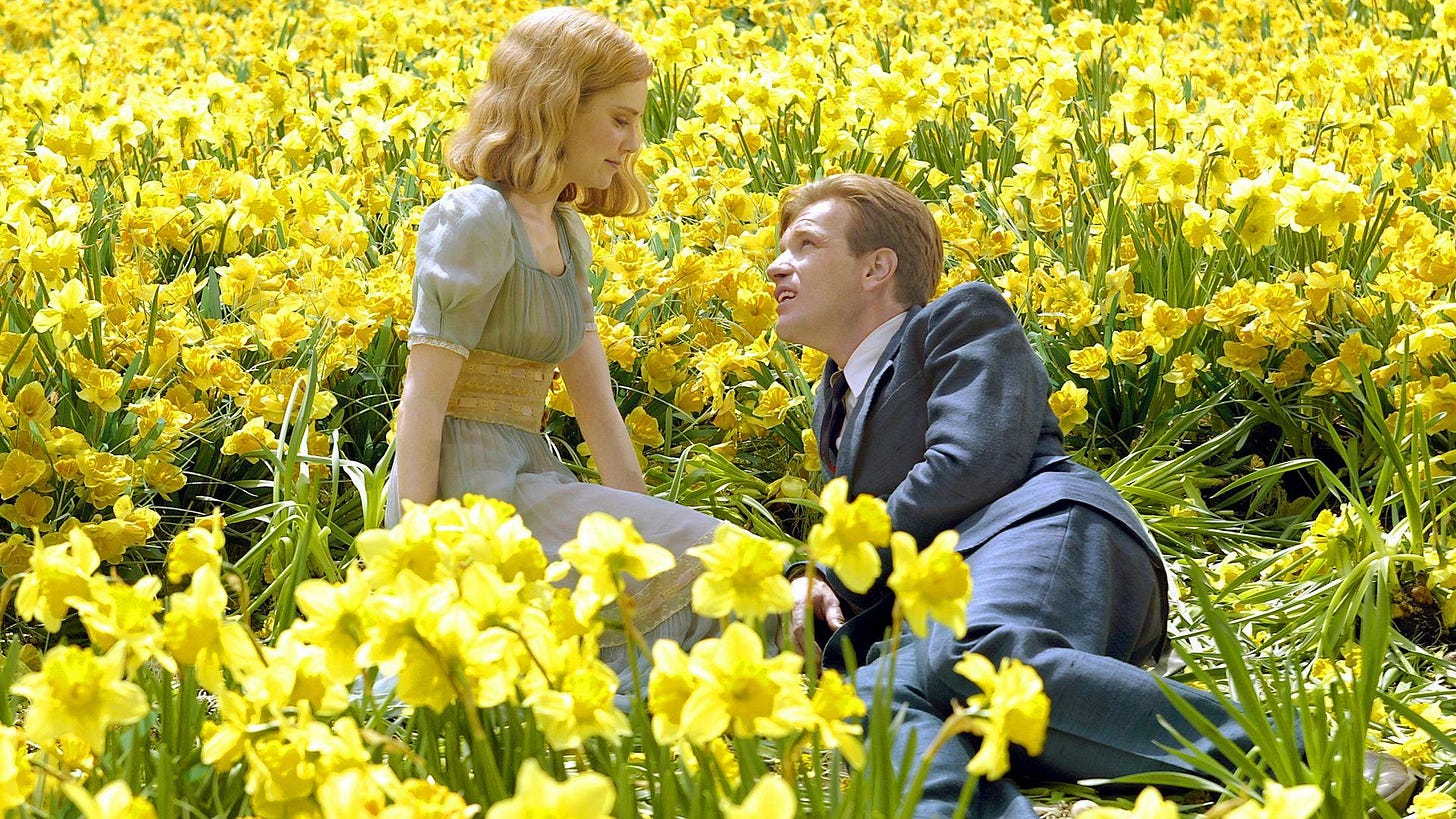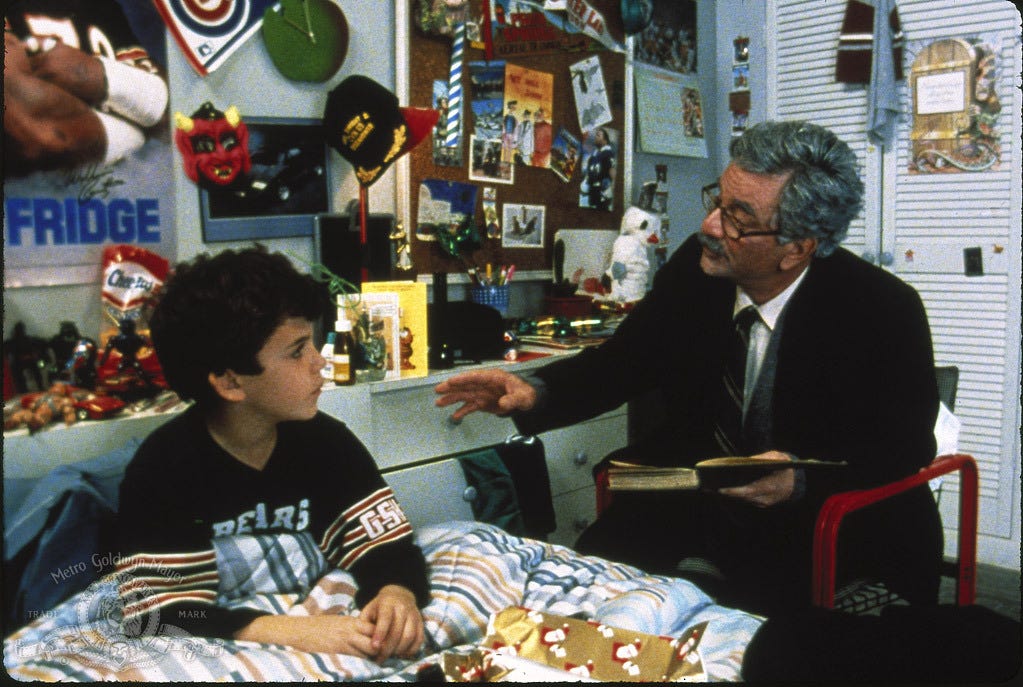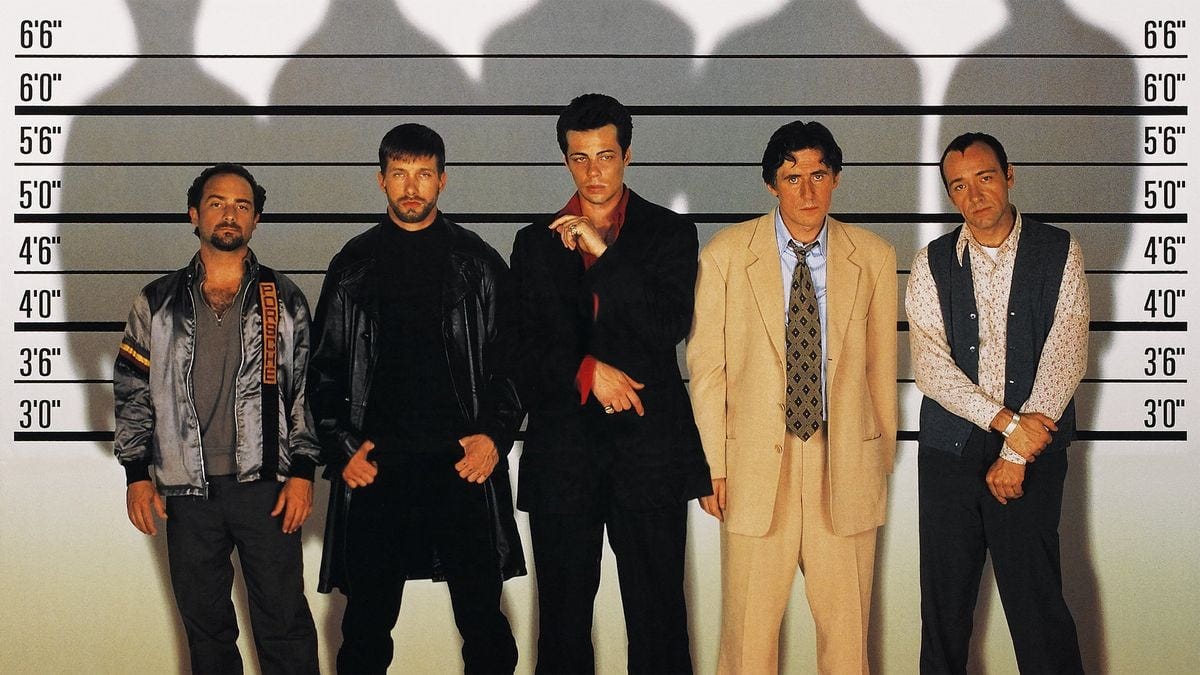Warning this Post has spoilers for the following films:
Big Fish
The Usual Suspects
Yo Dawg. I Hear You Like Stories
So I made you a story with a story in it so you can enjoy the story while you enjoy the story.
Dated meme reference aside, there’s something to be said about a story that tells it’s story literally through the narration of a primary character. I love movies that do this because typically it effects the way we experience the story. We don’t experience things the way we would if we saw it just in it’s linear self. Today I’m gonna talk about a few movies (this idea is prevelant in all mediums though) that tell stories within the story they are already telling.
“You were a big fish in a small pond, but this here is the ocean and your drownin'.”
Very few movies make me actually tear up. Big Fish is one of those movies. It tells the story of William Bloom (Billy Crudup), a young man reconciling with his dying father. Will’s goal is to get his father to tell him about his life, something his father has done all of his life, but this time he wants the truth. His father, Edward Bloom (Albert Finney), is quite the storyteller. He often tells tall tales about his life that Will loved as a kid but grew tired of as an adult. Will feels as if he hardly knows his father because of this. His anger grows as he father lay sick and dying, insisting his stories are true. As the movie progresses, Will learns more and more that the things his father told him weren’t necessarily untrue. A lot of them were based on reality. They were just greatly exagerrated when Edward told them.
In actuality, the storyline with Will is only a small fraction of the film. The bulk of the film is the stories his father would tell. We follow a younger Edward Bloom (Ewan McGregor) as he gets into all sorts of adventures. He meets a witch, helps a giant find a home, joins the circus, falls in love, he even goes MIA in the Korean War where he meets conjoined twins singing on a stage. All of it is told through this fantastical lense of whimsy and wonder. Why is that? Well, it’s because we see the story through Edward’s eyes. Yeah it might not be 100% accurate but it’s still undeniably Edward Bloom.
In the end, William ends up telling one final story about how he and his father go to the river and everyone he ever mentioned in his stories were there to wish him off. Edward then turns into the titular Big Fish and swims away. His father, of course, passes away. At his funeral, William sees some people that seem awfully familiar. There’s a rather tall man, not quite a giant but definitely bigger than most. There are twins there, though not conjoined. Even the ringleader of the circus he worked at came. That’s when Will realises that he wasn’t necessarily being told lies. Sure it was fantastical, but in some ways, his father’s stories are real.
“A man tells his stories so many times that he becomes the stories. They live on after him, and in that way he becomes immortal.”
Is This a Kissing Book?
Ah, The Princess Bride. A true cinematic classic. This movie was something my parents would quote constantly growing up. With good reason too. It’s a fantastically witty and goofy fantasy adventure with a myriad of memorable lines.
Now, the story within a story aspect to this movie is a little different. The narration part of the plot doesn’t really connect all that much with the overall story. The Princess Bride is narrated to us by a grandfather (Peter Falk) reading a book to his ill grandson (Fred Savage). Neither of the characters have anything to do with the plot other than being the vehicle for the story to be told. They also have their own memorable moments dispersed throughout the film (example being the title of this section).
I don’t have much to say about this one. This is more just to talk about how one can get enveloped in a story, like Fred Savage’s character. He initially dismisses the story (once again I refer to the title of this section). But, as the story goes on, he grows more and more interested, even at one point insisting his grandfather continue. It shows stories are versatile things. You may find something in just about any good story that you may like. Even if there is some kissing.
Hand Me the Keys, You %&$#%*$ *@#$^$#^$#!
Pardon my language. Before I start, if you have not seen the Usual Suspects and don’t want the ending spoiled LEAVE NOW! You have my permission to stop reading my post.
The Usual Suspects is one of those movies where you think you know what is going on… until you don’t. The narration point of the story is the interrogation of Roger Kint (Kevin Spacey), a con artist with a bad limp. He’s being interrogated as a survivor of an incident involving a boat catching fire at the Los Angeles port. We see the events leading up to the incident as Kint tells them to the FBI agent.
He and four other men are taken in as suspects in a truck hijacking. The men team up to commit a heist as a way of getting revenge on their “wrongful arrest”. They do another heist, only for the operation to fall apart. The failed job, they learn, was put together by a lawyer by the name of Kobayashi, a representative of the elusive crime lord Keyser Söze. Kobayashi tells them they were initially arrested by Söze’s orders as retaliation for stealing from him. Söze is willing to spare them if they destroy a boat filled with millions of dollars worth of cocaine. This said job is what led to Kint being in the interrogation room, being the only one of two survivors of the job.
The agent comes to the conclusion that one of the other men involved was actually Keyser Söze. Making that decision, Kint is allowed to leave the station. While looking around his office, the agent notices things around his office that match things within Kint’s story. He even looks at this coffee cup and sees the brand name “Kobayashi”. Already out of the station, Robert Kint walks off, his limp magically vanishing. He gets into a car driven by the supposed Kobayashi and drives off, meaning the real Kaiser Söze got away.
The really cool part of this story within a story is that the ending literally changes everything. It means we don’t actually know what happened. All we saw was what Kint wanted the FBI agent to know. To completely flip a story on it’s head in the last few minutes still makes the ending of The Usual Suspects one of the greatest plot twists of all time.
True Storyception
I find films that tell a story within a story to be fascinating. Whether the story that is telling the other story is giving us clues to the real story or it’s just something fun that adds to the film. It really shows that there isn’t just one way to tell a story. You don’t have to just go from beginning to end. Done right, you could tell a story after all the action has already happened or tell a completely different story than the one you started with.








My way isn’t very sportsman-like!